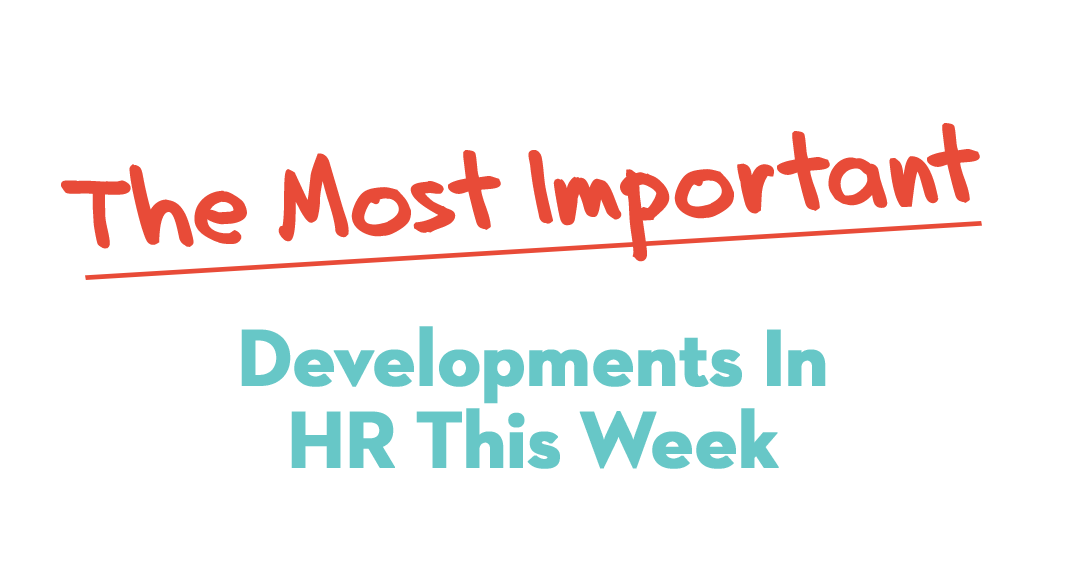
We’ve been writing about how bias can creep into AI in hiring (Amazon, we’re looking at you), and apparently Congress has heard about it, too. To reduce such bias and discrimination, Sen. Cory Booker and others recently proposed the Algorithmic Accountability Act of 2019, with Rep. Yvette Clarke sponsoring an equivalent bill in the House. The Act is the first federal legislative effort to regulate AI systems across industries in the United States, and it reflects a growing and legitimate concern regarding the lawful and ethical implementation of AI. This will require businesses that use, store or share people’s personal info to conduct impact assessments and reasonably address any biases and security issues. Jones Day


WeWork’s planned IPO is facing an unexpected snag: multiple gender and age discrimination lawsuits from former executives. On Thursday, former WeWork senior vice president and head of compensation Lisa Bridges filed a complaint in a New York state court that the company’s pay significantly and unfairly favored men. Bridges alleges that when she raised the issue internally, WeWork put her on leave and then fired her. This, just weeks after former WeWork vice president of construction Richard Markel, 62, filed an age discrimination lawsuit in San Francisco Superior Court. In his complaint, Markel alleged that he was unfairly fired and replaced by a younger man, just a year after taking the job. And last October, former director of culture Ruby Anaya filed a sexual harassment and gender discrimination lawsuit against WeWork in the Manhattan Supreme Court. All three lawsuits are currently pending. Inc.


This week, some 500 employees at Wayfair staged a walkout to protest the company selling beds to migrant detention camps, saying it’s not OK for their company to profit off the horrible, inhumane situation at the border. Other companies, like Square, tweeted their support of the cause, but it’s too early to say whether Wayfair top brass got the message. Wayfair co-founders Steve Conine and Niraj Shah said the company will donate $100,000 to support the American Red Cross’s efforts to help people at the border, but employees aren’t satisfied. They’d rather the funds go to RAICES, which helps with legal costs for migrants. The Red Cross, they say, has nothing to do with the ICE-operated facilities at the border. CNN


Brene Brown, the NYT bestselling author of “Dare to Lead” wowed the crowd at the SHRM19 conference this week. In case you weren’t among the 18,000 pros who descended on Vegas for this annual HR fest, Brown challenged HR to help cultivate brave leaders who will humanize work. That’s the type of future leaders companies will need to navigate the political realities, digital transformation, and speed of change that organizations are going to face now and in the future, she said. Another highlight of her speech: If you build a culture where vulnerability is seen as a weakness, forget about asking people to innovate. Innovation, by its nature, requires failure in order to learn and move forward. SHRM19 Expo


A few years ago, only a handful of companies employed blockchain developers. Today, blockchain knowledge is one of the hottest tech skills on the market. HR pros might think their relationship with blockchain begins and ends with recruiting tech-savvy employees. But as more HR-focused blockchain tools hit the market, that won’t be the case for long. Blockchain is a public, decentralized ledger of records, or blocks, that are linked together on a network using cryptography. It’s a secure way to store information or transactions between two parties. Blockchain tools can help HR pros handle all sorts of tasks. From identity validation and background checks to referral systems and payment processing, blockchain technology offers an incredible variety of improved tools for HR departments in the know. Glassdoor


Are you familiar with the McKinsey Podcast? They’re periodic (every couple of weeks or more) 30-minute podcasts that take us inside the McKinsey organization and feature conversations with experts on various issues that matter most in business and management. Past podcasts have included discussions about globalization, unlocking marketing-led growth, even getting beyond gridlock in cities. (Have you been to Manhattan lately? Please. Don’t get us started.) An especially provocative topic this week that’s worth a listen: Matching talent to value. The roles that create the most value in your organization may not be at the top. Getting the right people in these critical seats can turbocharge your company’s performance. The McKinsey Podcast










